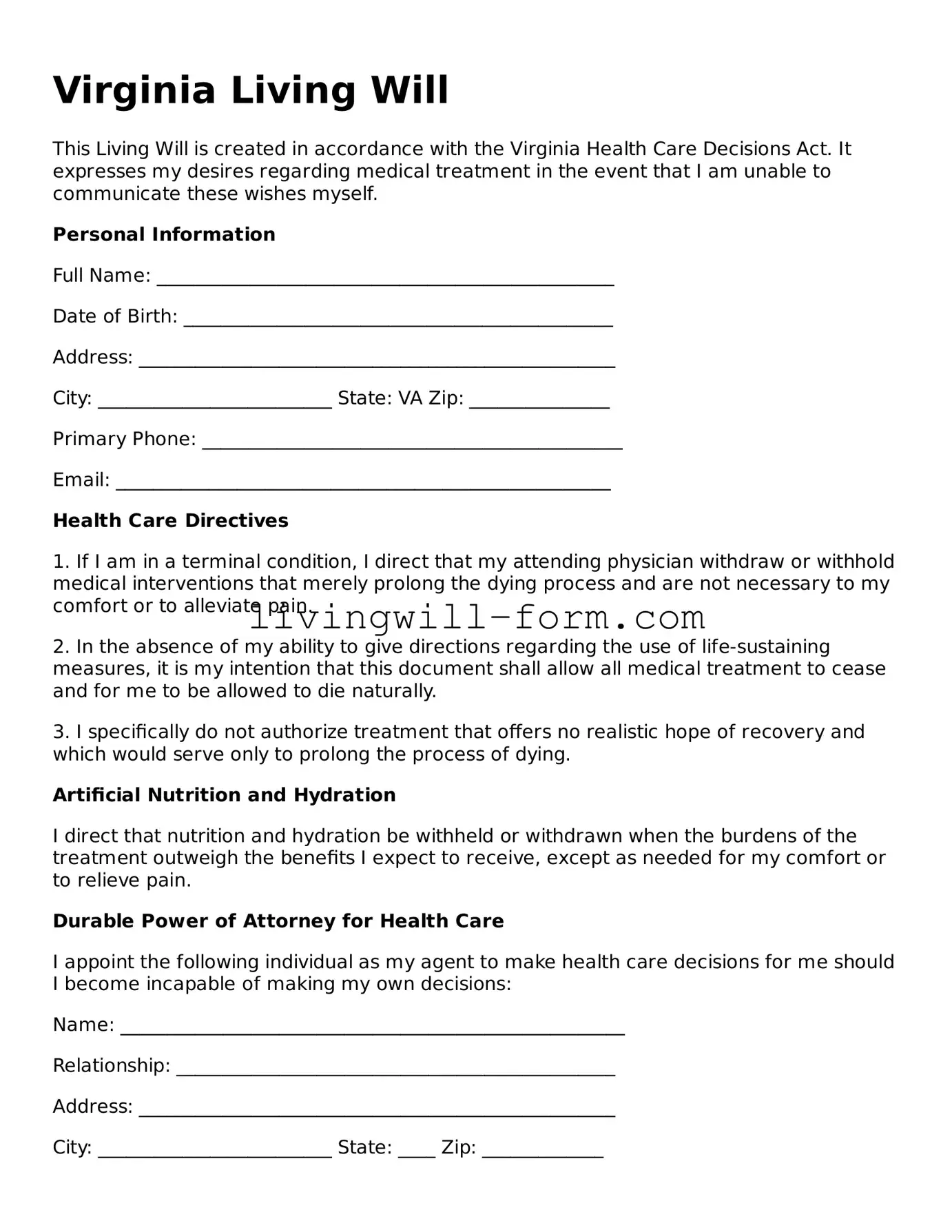Virginia Living Will
This Living Will is created in accordance with the Virginia Health Care Decisions Act. It expresses my desires regarding medical treatment in the event that I am unable to communicate these wishes myself.
Personal Information
Full Name: _________________________________________________
Date of Birth: ______________________________________________
Address: ___________________________________________________
City: _________________________ State: VA Zip: _______________
Primary Phone: _____________________________________________
Email: _____________________________________________________
Health Care Directives
1. If I am in a terminal condition, I direct that my attending physician withdraw or withhold medical interventions that merely prolong the dying process and are not necessary to my comfort or to alleviate pain.
2. In the absence of my ability to give directions regarding the use of life-sustaining measures, it is my intention that this document shall allow all medical treatment to cease and for me to be allowed to die naturally.
3. I specifically do not authorize treatment that offers no realistic hope of recovery and which would serve only to prolong the process of dying.
Artificial Nutrition and Hydration
I direct that nutrition and hydration be withheld or withdrawn when the burdens of the treatment outweigh the benefits I expect to receive, except as needed for my comfort or to relieve pain.
Durable Power of Attorney for Health Care
I appoint the following individual as my agent to make health care decisions for me should I become incapable of making my own decisions:
Name: ______________________________________________________
Relationship: _______________________________________________
Address: ___________________________________________________
City: _________________________ State: ____ Zip: _____________
Primary Phone: _____________________________________________
Secondary Phone: ___________________________________________
If my primary agent is unable to serve, I appoint the following person as my successor agent:
Name: ______________________________________________________
Relationship: _______________________________________________
Address: ___________________________________________________
City: _________________________ State: ____ Zip: _____________
Primary Phone: _____________________________________________
Secondary Phone: ___________________________________________
Signature and Acknowledgment
This living will shall be in effect until I revoke it. No alteration of this document will be effective unless it is executed with the same formalities as an original document.
I have read or had read to me this document and I understand its contents. By signing below, I confirm that I am emotionally and mentally competent to make this living will.
Signature: __________________________________________________
Drinking age is a concern not to be underestimated; it signifies one's legal entrance into adulthood in many ways, including the attainment of the right to consume alcohol. In the grand scheme, it marks a period where responsibilities and privileges are expanded.
Date: ________________________________________________________
State of Virginia, County of _________________________________
This document was signed in my presence by ___________________________________ (name of declarant) who is personally known to me or who has produced _____________________________________________ (type of identification) as identification.
Signature of Witness: ________________________________________
Date: ________________________________________________________

